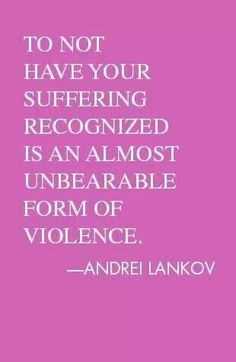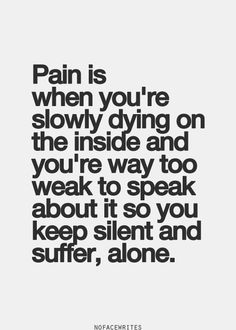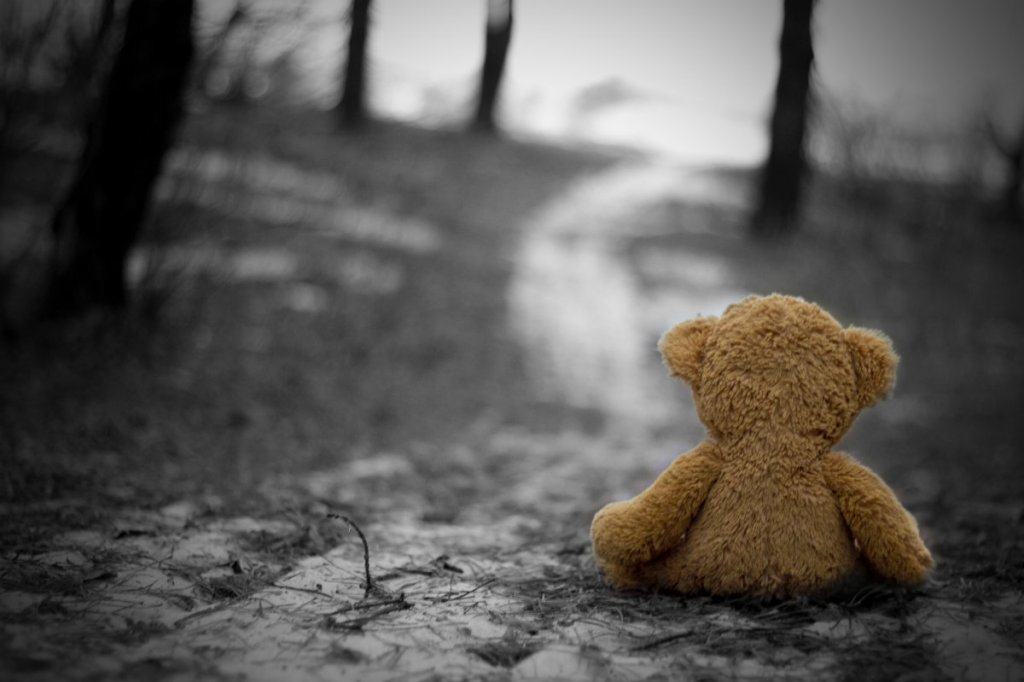How we wound the hurting with our reality

So, describe someone else's pain. Tough, isn't it. Truly, it's impossible. The best we can do is try and relate what we think someone else is going through with a personal experience we believe is similar and then try to recall how we felt while going through it.

However, this is patently ridiculous.
First, most of our painful experiences are no where near as poignant in retrospect. Time dulls most wounds. We may not forget, but it seems unlikely that we feel the same acute distress down the road that we suffered at the time of the offense. So even if we were to match exact experiences... hitting our thumb with a hammer for example, our recollection will likely be muted, reducing our ability to be truly empathetic.

But, expanding on the thumb hammer interaction, we also can't really compare these successfully. Different hammers? Different strength of swing? Different angle of impact? Differences in nerve acuity? Differences in circulating catacolamines and opiates in the blood at the time of the injury? Do we really know what they felt?
So how would we ever begin to compare the sense of despair, anguish, loss, and pain that a person is enduring when they have faced something much more complicated?
Victimization of a crime
Loss of a parent, child or other loved one
Betrayal
Violation
Depression
PTSD
Survivor's guilt
Fear
Guilt

While many have experienced one, some, or all of these... how can we imagine comparing the circumstances we've been through to those of another? Because we think they're similar?
All of these sources of pain are as individual to the person suffering as their DNA. Their collection of life experiences, their emotional state, their relationships with others, and many other variables creates the darkness of pain in their mind.
So when we insert ourselves in their situation, whether meddling or meaning well with unsolicited advice based on our reality... we risk adding to their grief.

Telling someone to "get over it" or "forget about it and move on" may be sound advice, but it trivializes the suffering and doing these things is impossible to a suffering person.
When you are struggling you don't want people to add to your burden, implying you are weak with statements such as:
It could be worse
I know exactly how you feel
Buck up
There are people who have suffered a lot more than you
Just look at how good your life is... this is just one thing.
I'm not saying that people who are close confidants should try to be encouraging and supportive. We need reassurance in our deepest pain. Just don't approach it from a direction that delegitimizes the pain. We want to speak strength and support and solidarity with them during their suffering.

You might truly think the response of the person is silly or exuberant... but pause for a moment.
Upon what basis have you made that conclusion?

Because you imagine yourself in the same situation, a situation that you can not possibly understand from within, and then imagine your reaction, based on your reality, with no actual objective method to understand how the situation affects someone who's reality is different?
How much pain should someone be in when they lose a toy? I'm talking about two kids losing the same type of toy.
Doesn't that depend on how many toys the person has?
Who gave them the toy and under what circumstances?
How much they had to work to buy the toy?
What else is going on in their life that might have given that toy special significance?
What if it is their only toy... ever?
Now what if it wasn't a toy, but a beloved pet
Or a parent losing their child
Or a child losing their childhood innocence

(from an excellent article on child loss found at https://www.nrfa.org/understanding-child-loss)
So accept people's pain at their word. If they are embellishing or trying to just gain sympathy, that in itself says something. Are we committed to dragging the drama queens/kings out to belittle them and teach them some sort of lesson to the point that we ignore that their drama to some event might be the real cry for help for some deeper pain that we've never bothered to notice? And what about the fact that you are passing judgement on their pain based on... well... the wrong reality, meaning yours not theirs.

Listen... more importantly... HEAR the words of someone who is hurt. Respect their boundaries. Don't try to fix them, or coach them unless they ask and you have a level of intimacy that gives you that right. Support them. Encourage them. Hopefully, the time that heals wounds will pass with our support to the point where they can then breath and seek the aid they might need. Many of the things that hurt us don't need a formula... they need friends and family who will just be there, without judgement or attempts to minimize. Hurting people don't need to be made to feel misunderstood, ashamed, or alone. Suffering is very intimate, and requires recognition and respect so that the individual can accept that what they are feeling is reasonable and that others care... This provides a foundation for healing.
This is beautiful. Thank you for sharing wisdom with compassion. So ofteb we do not hear one another, other times we are not listening, not even to ourselves. And the pain begins.
Upvoted, loved and resteemed.
You are, as usual, too generous with your praise. Thank you for the kind words and support.